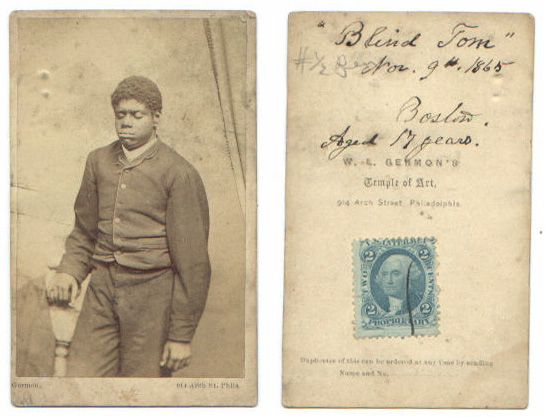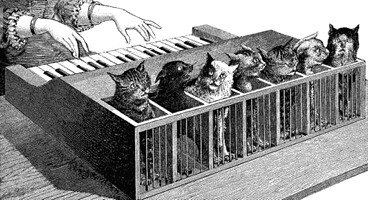Below are the hobo signs featured in The Secret of the Old Clock game:

 And now, you are ready to start wondering aimlessly from town to town. Hobo Lingo is lesson 2.
And now, you are ready to start wondering aimlessly from town to town. Hobo Lingo is lesson 2.

 And now, you are ready to start wondering aimlessly from town to town. Hobo Lingo is lesson 2.
And now, you are ready to start wondering aimlessly from town to town. Hobo Lingo is lesson 2.

"The most important is to be pure and upright in morals; If pure, you are clean inside and outside; Chastity is your body's glory. Having it, all your acts shine. When walking, look straight, turn not your head; Talking, restrain your voice within your teeth; Sitting, don't shake your knees a common fault with men; Standing, keep quiet your skirts; When pleased, laugh not aloud; If angry, still make no noise[...] Fully understand. Boys and girls must not together be. With outside business you have no concern; Therefore, go not beyond the court. If necessary outside to go, Exhibit not your form, But screen your face with fan or veil. To men who are not with you related you may not speak. With women and girls of not careful conduct you may not associate. Following virtue, decorum, and uprightness, you so accomplish the end of your being. "On raising a girl:
"Girls must dwell in the secluded rooms ; Seldom permit them to go outside. When they are called they must come ; When told to go, let them obey. If disobedient in the least, Use small switches and punish them. "On having a husband:
"When a girl leaves her father's house Her husband thereafter Is her nearest relative. In her former state, before she was born, Her relations in the present world were fixed. Her husband is to her as heaven ! How dare she fail to reverence him ? The husband commands, the wife obeys ; Yet let there be mutual grace and love [...]When the 'husband goes out The wife should respectfully ask how far he must walk. If by the middle of the night He has not returned home, She may not sleep, but must still wait for him, Keep the light burning and his food hot, Until she hears his knock at the door. Do not imitate lazy women Who go to bed before it is dark. "If this is interesting, you can download the text file or a pdf of the book.
 When researching a while ago, I came across a musical artist named Blind Tom. Blind Tom, as his name states, was blind. He was an African American slave who had an uncanny knack for the piano. Born in 1849, Tom didn't learn to speak very well, and since he was blind, he couldn't work in the fields. At a very early age, Tom started playing the piano. At the age of 5, he wrote his first song. A musical savant, Blind Tom could repeat music on the piano by just hearing it once. At the age of 5, Blind Tom composed The Rain Storm. Starting at the age of 8, Blind Tom performed concerts of his piano playing which proved very profitable to his owners. He also developed many other talents
When researching a while ago, I came across a musical artist named Blind Tom. Blind Tom, as his name states, was blind. He was an African American slave who had an uncanny knack for the piano. Born in 1849, Tom didn't learn to speak very well, and since he was blind, he couldn't work in the fields. At a very early age, Tom started playing the piano. At the age of 5, he wrote his first song. A musical savant, Blind Tom could repeat music on the piano by just hearing it once. At the age of 5, Blind Tom composed The Rain Storm. Starting at the age of 8, Blind Tom performed concerts of his piano playing which proved very profitable to his owners. He also developed many other talents"Other astonishing feats included his alleged ability to perform difficult selections almost flawlessly after one hearing, sing and recite poetry and prose in several languages, duplicate phonetically lengthy orations by noted statesmen, and reproduce sounds of nature, machines, and musical instruments on the piano. Being possessed of a rich baritone voice, Tom also included original and sentimental songs by such English songwriters as Henry Russell and Henry Bishop in his concerts."Blind Tom was very exploited by his owners, who collected around $50,000 on him yearly from his concerts. A very large sum during that time. Custody over Blind Tom changed hands many times in his later popular years. By the end of his life, it was estimated that Blind Tom could perform over 7,000 different songs as well as the songs that he has composed himself. These songs include the Sewing Song (sheet music here) which imitates the noise made by a sewing machine. Blind Tom died in 1908 at the age of 59.
 I thought I'd share a music artist today. Janet Klein, while modern day, is pretty much stuck in the early 20's. I talked to some people who know her. She's actually like this even when not on stage. Which is pretty swell if you ask me. So step back in time and stay awhile. This song is called Yiddish Hula Boy.
I thought I'd share a music artist today. Janet Klein, while modern day, is pretty much stuck in the early 20's. I talked to some people who know her. She's actually like this even when not on stage. Which is pretty swell if you ask me. So step back in time and stay awhile. This song is called Yiddish Hula Boy.Hab gat lening kum daun - There is rain coming down
Tumulo mai no kan kum - I can't come tomorrow
Mai no hab kachi basket - I didn't bring a basket
"It is not all unreasonable for the laundryman to require the customer claiming laundry to present a ticket because without it, locating the customer’s clothing is made difficult. Furthermore, someone might claim clothing that did not belong to them. But no Chinese laundryman would have used the phrase, “No tickee, no washee,” or its other forms, “No tickee, no laundee”, or “No tickee, no shirtee” to make this point. The phrase is just one example of the way whites often fabricated pidgin English terms to make fun of the difficulty Chinese had in pronouncing English."
 The cat organ is a hypothetical instrument consisting of a piano with cats lined up with their tales under the keys which were attached to nails. When a key is pressed, the nail would go into a cat's tail and then the cat would sound. The cats were arrange accordingly in the scale of an octave. First considered in the 18th century, it was later thought, during the early 1900's it had its use as a psychiatric treatment for people who had lost their attention spans. Once hearing "[...]A fugue played on this instrument--when the ill person is so placed that he cannot miss the expression on their faces and the play of these animals--must bring Lot's wife herself from her fixed state into conscious awareness"
The cat organ is a hypothetical instrument consisting of a piano with cats lined up with their tales under the keys which were attached to nails. When a key is pressed, the nail would go into a cat's tail and then the cat would sound. The cats were arrange accordingly in the scale of an octave. First considered in the 18th century, it was later thought, during the early 1900's it had its use as a psychiatric treatment for people who had lost their attention spans. Once hearing "[...]A fugue played on this instrument--when the ill person is so placed that he cannot miss the expression on their faces and the play of these animals--must bring Lot's wife herself from her fixed state into conscious awareness"